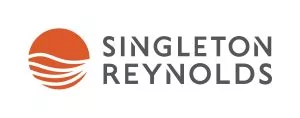- with Finance and Tax Executives and Inhouse Counsel
- in Canada
- with readers working within the Insurance, Property and Law Firm industries
Dispute boards – whether they be classic dispute review boards or dispute adjudication boards – are increasingly common on large construction projects in North America as a means of addressing and resolving disputes without the need for full-blown arbitration or litigation. Despite their growing international popularity, however – particularly given their use in the FIDIC forms of contract – and despite a wealth of prescriptive documentation (e.g. institutional rules) there has to date been a dearth of statistical data by which end users could scrutinize their utility and effectiveness.
Fortunately, this has now changed. The 2024 Dispute Boards International Survey (the "Survey" – available here) has been released by the Centre of Construction Law and Dispute Resolution at King's College London, which has collected data on the use of dispute boards over the past six years in order to provide an in-depth study on their worldwide usage, and to allow users to analyze current practices and trends.
The Survey represents a significant effort to provide meaningful statistical data in respect of dispute boards ("DBs"), addressing issues such as diversity, effectiveness, costs, and procedural preferences, and is therefore required reading for any construction industry participant. Below, we summarize the key findings of the Survey.
Findings of theSurvey
Insights from Individuals and Entities
The Survey defines "Individuals" as practitioners involved in Dispute Board processes, including engineers, legal advisors and construction professionals engaged at the project level. These respondents reported involvement in 3,323 projects globally between 2018 and 2023, encompassing a diverse range of construction, infrastructure, and industrial initiatives. Among these projects, 50.9% incorporated DBs to proactively manage disputes, reflecting the growing reliance on DBs in maintaining project continuity. Notably, 69.9% of these DBs were standing (continuously operational throughout the project lifecycle), while 31.1% were ad hoc (established to address specific disputes as they arose) rather than standing boards.
"Entities" is defined the Survey as organizations such as companies, joint ventures, or associations actively engaged in construction and infrastructure development. These respondents reported 530 projects over the same period, 40.9% of which featured DBs. 59.4% of those were ad hoc Dispute Boards, whereas the remaining 40.6% were standing Dispute Boards.
A significant portion of DBs originated from standard contractual provisions. Specifically, 65% of DBs reported by Individuals and 62% by Entities were founded on agreements embedded in widely used frameworks such as the FIDIC and NEC forms, which typically include standardized dispute resolution mechanisms. Despite concerns about the cost of adopting DBs—a factor cited by 85% of Entities as a key deterrent—Entities still expressed a preference for standing DBs over ad hoc DBs, particularly for larger or longer-term projects. This preference stems from the perception that standing DBs, with their consistent oversight, provide greater stability and efficiency in dispute management. Additionally, Entities favoured DBs with three-member panels for their balance of expertise and impartiality, and favoured binding determinations, which offer more definitive resolutions as compared to non-binding recommendations.
The types of disputes brought before DBs often stemmed from changes initiated by clients (42% for Individuals and 36% for Entities), inaccurate design information, and delays. Financially, Individuals most frequently encountered disputes valued between $2,000,001 and $5,000,000, while Entities reported an equal prevalence of disputes in the $1,000,001 to $2,000,000 and $5,000,001 to $10,000,000 ranges. DB processes typically concluded within 76 to 90 days, with case complexity being the primary factor affecting duration.
Institutional Perspectives
"Institutions" are defined in the Survey as organizations that administer or facilitate DB procedures, including appointing members, managing processes, and ensuring compliance with procedural rules. These Institutions reported overseeing 219 DBs globally between 2018 and 2023. Of these, 91.3% were standing DBs
Institutions also reported a preference for three-member panels, emphasizing collective expertise and balanced decision-making. Their role extended to setting fees, typically structured as daily rates, with ranges between $0 and $2,000 per day. Institutions prioritized technical qualifications and experience in interpreting construction or engineering contracts when selecting DB members. Despite these efforts, diversity emerged as a challenge. While 62% of Institutions maintained panels of DB members, only half actively sought to enhance diversity, and 58% did not collect diversity-related data.
Funders' Practices and Preferences
"Funders" are defined in the Survey as organizations that finance construction and infrastructure projects, often requiring DB mechanisms as part of contractual agreements to safeguard their investments. Funders reported involvement in 2,464 projects, with 76.7% incorporating DBs. Among these, 73.9% were standing DBs, reflecting Funders' preference for ongoing oversight to ensure project continuity.
Despite their support for DB inclusion, it appears that Funders were rarely involved in the negotiation of DB agreements or day-to-day processes. Instead, their involvement focused on covering costs for external counsel or experts and participating in DB member appointments. Interestingly, 92% of Funders supported the idea of an international convention to facilitate the enforcement of DB decisions, a sentiment potentially indicative of a global perspective and interest in streamlined dispute resolution practices.
Miscellaneous Findings
The Survey also sheds light on several operational and procedural aspects of Dispute Boards. For example, technological measures like electronic correspondence were widely adopted to enhance efficiency. Site visits and regular meetings, typically scheduled every 91 to 120 days, were crucial procedural elements. Compliance with DB findings was notably high when decisions were binding, although recommendations were followed less consistently.
Diversity and bias remained areas requiring improvement. Most respondents considered DBs only "a little diverse," with Entities more frequently suspecting bias than Individuals. Nonetheless, respondents widely acknowledged DBs' effectiveness in avoiding or mitigating disputes. Subsequent litigation or arbitration was rare, and outcomes seldom differed significantly from DB decisions.
Costs and External Specialists
Cost considerations varied widely. For Individuals, annual DB costs most commonly ranged from $100,001 to $200,000, while Entities reported a range of $200,001 to $300,000. These costs typically represented less than 0.5% of total project budgets.
The Survey found that external lawyers and experts were involved inconsistently, which may demonstrate the need for more flexibility in DB processes. While 45% of Individuals rarely saw external lawyers participating, 39% reported frequent involvement, which may reflect varied cultural practices across projects and industries.
Commentary
Overall, the Survey represents a significant effort in consolidating empirical data on DB practices and their impact on global construction projects. The findings showcase the evolution of DBs, highlighting their expansion from large-scale infrastructure projects to diverse industries, including energy, transportation, and digital technology. This shift demonstrates the growing importance of DBs in addressing industry-specific challenges. As DBs increasingly serve as tailored dispute resolution mechanisms, the findings may suggest an opportunity to standardize best practices globally.
A particularly impactful aspect of the Survey is its focus on diversity and bias. While these remain areas of concern, particularly in international projects where diverse stakeholder representation is essential, the Survey makes a compelling case for addressing these gaps through deliberate policies and practices. The increasing globalization of construction projects amplifies the importance of improving inclusivity and impartiality within DBs.
The Survey's emphasis on cost-effectiveness is another noteworthy aspect. While DBs require an upfront investment, their ability to mitigate costly disputes early in project lifecycles often can outweigh these initial costs. The Survey's data highlights a growing awareness among stakeholders of the long-term value DBs bring to project stability and efficiency. Institutions and Funders can play a pivotal role here by promoting frameworks that reduce entry barriers, such as potentially streamlined fee structures and subsidized training for diverse DB panel members.
The content of this article is intended to provide a general guide to the subject matter. Specialist advice should be sought about your specific circumstances.




